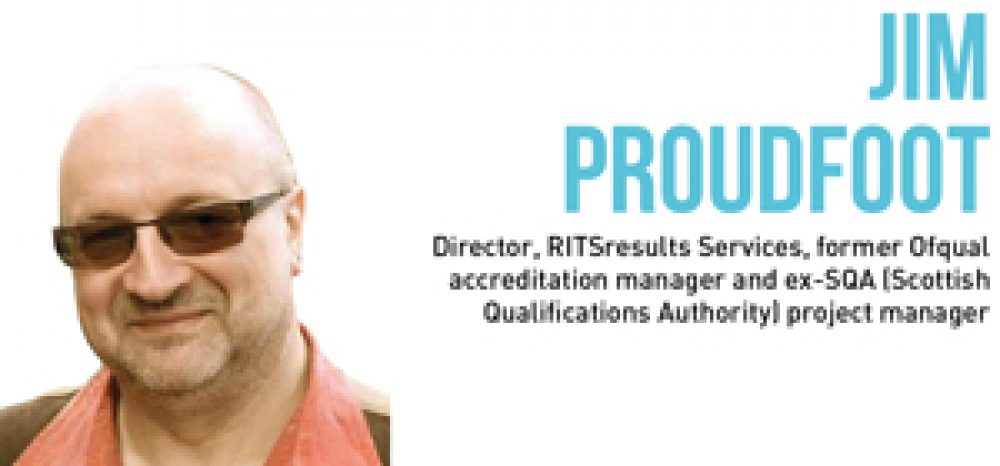Jim Proudfoot looks at Ofqual plans for accreditation requirements.
In order for a qualification to be offered in England it must have been accepted onto the Register of Regulated Qualifications to show that it is of a required standard and fit for purpose.
Until now all these qualifications have had an “accreditation requirement”.
This means they have been individually reviewed against the General Conditions of Recognition and also against any other appropriate criteria before being accredited.
This requirement will be lifted next month.
The accreditation requirement will continue to apply to some qualifications, with Ofqual specifying A-levels and GCSEs.
Other curriculum-based qualifications and probably NVQs and qualifications aimed at apprenticeships, those deemed important enough to fund, may be specified at a later date. In fact they may not lose it at all.
Ofqual has not highlighted these qualifications and they may well keep their accreditation requirement. It has cleverly been left open. Each awarding organisation (AO) will be informed about specific qualifications and it may be that one AO has a requirement and another does not for the same qualifications.
It will not be as straightforward as it sounds.
Meanwhile, the rest will go through automatically to the register when submitted by an AO on RITS, the IT system used by the regulators as a portal to the register, but this does not mean any less scrutiny or care will apply.
Ofqual is also consulting on Guided Learning Hours (GLH) as well as the current arrangements for the QCF (Qualifications and Credit Framework).
A major outcome of these initiatives for AOs will be the significant increase in their workload just to ensure that all qualifications remain compliant with the conditions and other relevant criteria. This may also be exacerbated by a change to RITS itself and any potential risk rating that Ofqual applies. The content and structure of the vast majority of their qualifications will not change at all. It will affect funding.
It may be that one awarding organisation has an accreditation requirement and another does not for the same qualifications
There is considerable pressure on AOs already who are still getting used to the new system introduced by Ofqual in October 2010. It is not obvious where the breakdown in communication is. The number of recognised AOs has grown from 25 to almost 180 ranging from the very large to those with only a few qualifications — all vary in how they operate but all react in a similar way to the effects of change and to costs and funding.
Communication and clarity are the issues.
Regulations and other criteria are fairly high-level by nature otherwise they would be unworkable. The MOT certificate confirms a car is roadworthy but, legally, only applies to the time and day it is issued. It is the responsibility of the owner to maintain it or they will forfeit the right to use the road. The same applies to AOs and their qualifications.
Different messages come from different organisations at different times and rumours abound.
Ofqual has been the guardian of standards of qualifications in various guises over the years but it is led by government initiatives. Although it has a certain amount of autonomy it has to report to Parliament and implement what has been decreed.
Qualifications are the intellectual currency that indicate our potential to others and open doors of opportunity. They are also one way of measuring our own abilities and helping us achieve our goals.
There is a danger they will be undermined or devalued by risk taking and, as with the banking crisis, it will be those who can least afford to be given a chance to prove themselves who will pay the price.
A qualification is not an end in itself. It is the responsibility of the individual to use it as they see fit.
Ministers take advice from a range of experts before making a decision. Advice from groups who are not in regular communication with each other can be as detrimental as advice from one individual with nothing to compare it to.
Qualifications and curriculums are cyclical but the basics do not really go away, only the packaging changes.
While we must remain vigilant, it is the practitioners who need support to ensure we remain competitive — success will regulate success.









Your thoughts